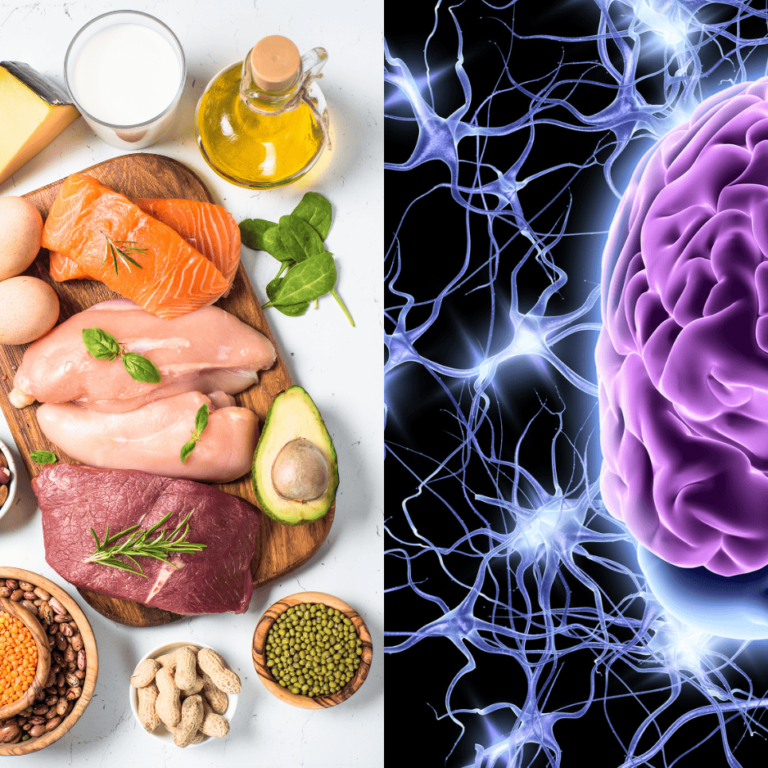In the realm of modern medicine, where complexity often obscures the simplicity of underlying truths, a revolutionary concept is emerging – one that challenges the conventional boundaries between physical and mental health. As we delve deeper into the complex workings of the human body, a profound revelation emerges: the undeniable link between metabolism and mental well-being.
In recent years, the rise of psychiatric disorders has left healthcare professionals scrambling for effective solutions. However, amid the rising tide of diagnoses, a beacon of hope is shining – a new paradigm known as Metabolic Psychiatry. This innovative approach goes beyond traditional symptom-based treatment, instead aiming to address the root cause of mental health conditions by examining the close interaction between metabolism and the mind.
But what exactly does diet have to do with mental health? How can we make a connection between psychiatry and metabolism? And is it imperative to consider nutritional interventions in the treatment of mental disorders?
The answers lie in new discoveries brought about by the rapidly growing field of Metabolic Psychiatry. As we unravel the mysteries of the human brain, we are beginning to recognize the central role of metabolic processes in shaping mental health outcomes. We can no longer afford to see mind and body as separate entities. Rather, they are symbiotically intertwined, each exerting a profound influence on the other.
Consider, for example, the dramatic increase in mood and mental health disorders seen in recent times. Why is this epidemic out of control? The answer may lie in the thought that Alzheimer’s and dementia are now likened to type 3 diabetes, shedding light on the dire consequences of uncontrolled blood sugar levels on cognitive function. It’s a wake-up call for the medical community – a stark reminder that mental well-being cannot be separated from metabolic health.
The human brain, like the body, thrives on a balanced diet rich in essential nutrients. However, in today’s fast-paced world flooded with refined sugars and carbohydrates, our brains are paying the price. Metabolic Psychiatry offers a ray of hope amid this nutritional chaos, revealing the path to optimal mental health through targeted nutritional interventions.
Enter Metabolism and the Mind – a transformative educational course designed to empower healthcare professionals with the knowledge and tools they need to navigate this new frontier in psychiatric care. Tailored to professionals from diverse disciplines, including physicians, nurses, dietitians, and health coaches, this course transcends traditional silos, fostering interdisciplinary collaboration to provide holistic care that addresses both the metabolic and psychiatric aspects of health.
Why is this training necessary for healthcare professionals?
By delving into the complex relationship between metabolism and mental health, practitioners will gain valuable insights far better than traditional treatments. From understanding the emerging role of therapeutic nutrition in the treatment of psychiatric disorders, the practical applications and case studies of ketogenic metabolic therapy, and more, this course will equip practitioners with the tools needed to usher in a new era of mental health care .
In a world surrounded by such an increase in chronic disease, Metabolism and the Mind will help demonstrate and raise awareness of the significant change needed – and is a testament to the transformative power of interdisciplinary collaboration in creating a healthier future for all. Join us as we embark on this journey of discovery, unraveling the mysteries of the mind one metabolic pathway at a time.
Learn more and register on our website here:
Until June 26, 2024, a 20% early bird discount is offered! A portion of each Nutrition Network training program enrollment fee goes toward funding The Noakes Foundation and his important research work. This means that by participating in Metabolism and the Mind, healthcare professionals not only expand their knowledge and skills, but also help fund research that can revolutionize our understanding of metabolic health and mental well-being.
